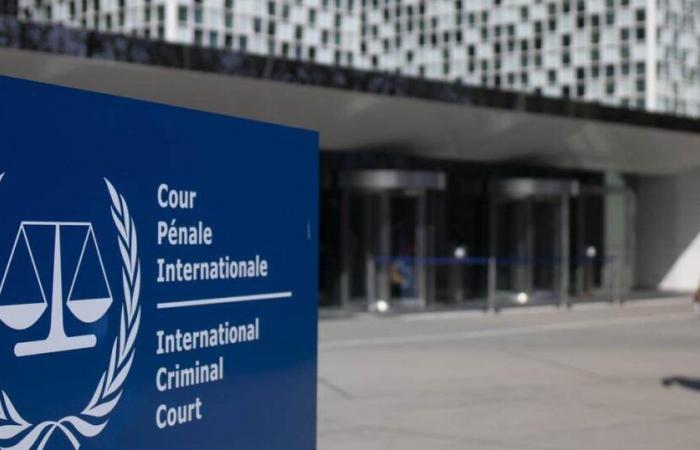
ICC arrest warrants for Benjamin Netanyahu and Yoav Gallant reignite debate over “Hague Invasion Law.” This American legislation authorizes, in theory, military intervention to protect a national or ally, illustrating the United States’ distrust of this institution.
It is common knowledge that the United States has never adhered to the game of international justice. Just like China, India or Russia, they have never ratified the Rome Statute of the International Criminal Court (ICC).
But what is less known is that they have a law authorizing, in theory, the use of force to counter this institution if an American citizen or an ally were to be pursued. This is theAmerican Service-Members’ Protection Act (ASPA)informally nicknamed “The Hague Invasion Law”.
Adopted in 2002, this law allows the United States to use “all necessary and appropriate means” to release a national or an ally detained by the ICC, based in The Hague, in the Netherlands. This could include a military officer, a civil servant or even the leader of an allied country like Israel.
Legally possible
The ironic nickname of the law comes from the possibility given to the President of the United States to go so far as to trigger a military operation to free this possible person, i.e. an “invasion of The Hague”. If the idea seems far-fetched and unrealistic in reality, it symbolizes the distrust of the United States towards an institution that it considers politicized and dangerous for its sovereignty.
This scenario, although it seems absurd, is nevertheless legally possible. And with recent international arrest warrants issued against Israeli Prime Minister Benjamin Netanyahu and his former Defense Minister Yoav Gallant for alleged war crimes in the Palestinian territories, the issue is once again relevant.
>> Reread: ICC issues arrest warrants for Benjamin Netanyahu, head of Hamas military wing
“A kangaroo court”
A few days ago, on social networks, Republican senator Tom Cotton did not hesitate to invoke the “Hague invasion law”, as reported by several American media.
“The ICC is a kangaroo court and Karim Khan (the ICC prosecutor, editor’s note) is a deranged fanatic. Woe to him and all those who try to implement these illegal warrants. Let me kindly remind them that this is not the case. It’s not for nothing that the US ICC law is known as the “Hague Invasion Act.” Think about it, he wrote on X.
External content
This external content cannot be displayed because it may collect personal data. To view this content you must authorize the category Social networks.
Accept More info
A controversial law
While the Biden administration quickly rejected the ICC’s decision, it did not go so far as to invoke this controversial law that Human Rights Watch described at the time of its adoption as an “attempt at intimidation.”
“We remain deeply concerned by the prosecutor’s haste in seeking arrest warrants and the troubling procedural errors that led to this decision. The United States has made clear that the ICC does not have jurisdiction over the matter. “In coordination with our partners, including Israel, we are discussing the next steps,” a spokesperson for the National Security Council told reporters.
Lindsey Graham, a senator and supporter of President-elect Donald Trump, called the ICC a “dangerous joke.” “It is now time for the American Senate to act and sanction this irresponsible body,” he stressed, without mentioning the “Hague invasion law”.
“If we do not act forcefully against the ICC decision, we are making a huge mistake,” he lamented again on X. “Israel is not a member of the ICC, nor are the States- United. (…) Israel and the United States have a very strong legal system. If we do not oppose the ICC’s attack on Israel, it amounts to recognizing that the ICC has jurisdiction over us.
External content
This external content cannot be displayed because it may collect personal data. To view this content you must authorize the category Social networks.
Accept More info
Countries divided on the issue
For the international arrest warrant against the Israeli Prime Minister and his former Defense Minister to be executed, they would still have to decide to travel to one of the 124 countries recognizing the ICC. And in this hypothesis, these States would then have to take the decision to arrest them, even if they have ratified the Rome Statute.
Which several countries, including Argentina, Hungary and Slovakia, have already announced that they will not do. Not to mention the countries that avoided answering the question of whether they would implement the ICC decision. France, for example, described the execution of the mandates as “legally complex,” while Italy said it would “assess with its allies what to do and how to interpret this decision.”
For its part, Switzerland should in principle arrest Israeli Prime Minister Benjamin Netanyahu if he came to Switzerland. As a state party to the Rome Statute, it is required to cooperate with the International Criminal Court (ICC), the Federal Office of Justice said.
>> Press analysis of the ICC arrest warrant against Netanyahu, in Tout un monde:
What seems most likely, according to John Quigley, a law professor at Ohio State University, is that the United States will soon take targeted measures against certain ICC officials, notably against the current prosecutor Karim Khan, as he explained to the media The New Arab.
According to him, once President-elect Donald Trump takes office in January, he could ban them from entering the United States, as he did in 2019 with former prosecutor Fatou Bensouda, in connection with an investigation on abuses by American soldiers in Afghanistan. However, he said, “there is nothing the United States can do to prevent the Court from handling a case or doing what it must do in all cases.”
External content
This external content cannot be displayed because it may collect personal data. To view this content you must authorize the category Infographics.
Accept More info
Fabien Grenon





